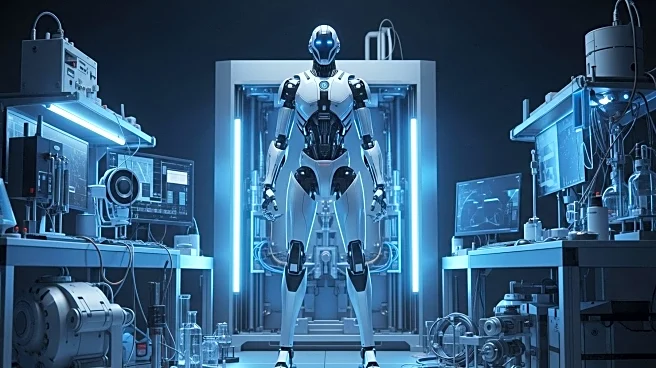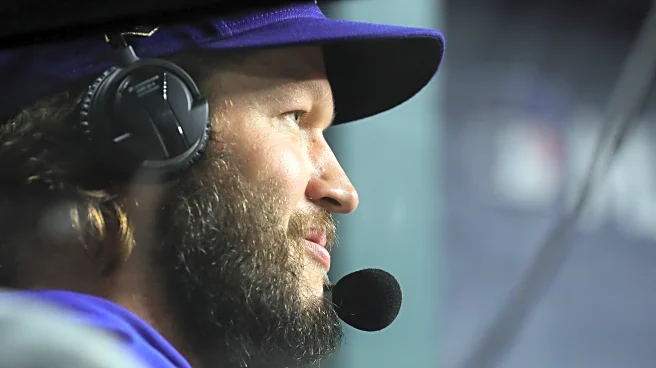What is the story about?
What's Happening?
Tesla is intensively working on scaling its humanoid robot project, Optimus, which CEO Elon Musk considers the company's most significant product. Initially announced several years ago, Optimus gained prominence at Tesla's 'We, Robot' event last October, where it performed various tasks such as serving drinks and entertaining attendees. Despite ambitious plans for production, Tesla faces challenges in scaling Optimus, particularly in refining its manufacturing processes and developing nimble hands capable of intricate tasks like threading a needle. Musk has emphasized the importance of overcoming these hurdles, as Optimus is expected to play a crucial role in Tesla's future, with plans for an annual production run-rate of 1 million units by 2030.
Why It's Important?
The development and scaling of Tesla's Optimus robot project hold significant implications for the company's future. Musk has projected that Optimus could constitute approximately 80% of Tesla's value, shifting the company's focus from electric vehicles to robotics as its primary growth engine. This transition could redefine Tesla's market position, potentially transforming it into a leader in AI and robotics. The success of Optimus could also lead to widespread adoption of humanoid robots for labor and personal use, impacting various industries and societal norms. The ambitious production goals and Musk's predictions underscore the potential for Optimus to revolutionize human life, akin to having personal robotic assistants.
What's Next?
Tesla's next steps involve addressing the technical challenges in scaling Optimus, particularly in manufacturing and developing its dexterous hands. As the company works towards its production goals, stakeholders will be closely monitoring its progress and the impact on Tesla's valuation. The broader robotics industry may also react to Tesla's advancements, potentially spurring innovation and competition. Additionally, regulatory and ethical considerations surrounding humanoid robots could emerge as production ramps up, influencing public policy and societal acceptance.
Beyond the Headlines
The development of Optimus raises ethical and cultural questions about the integration of humanoid robots into daily life. As Tesla progresses with its plans, discussions around privacy, job displacement, and the ethical treatment of robots may gain traction. The long-term implications of widespread robot adoption could lead to shifts in labor markets and societal structures, necessitating new legal frameworks and cultural adaptations.

















